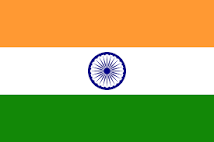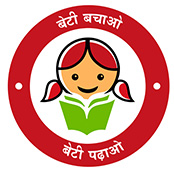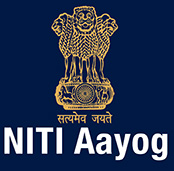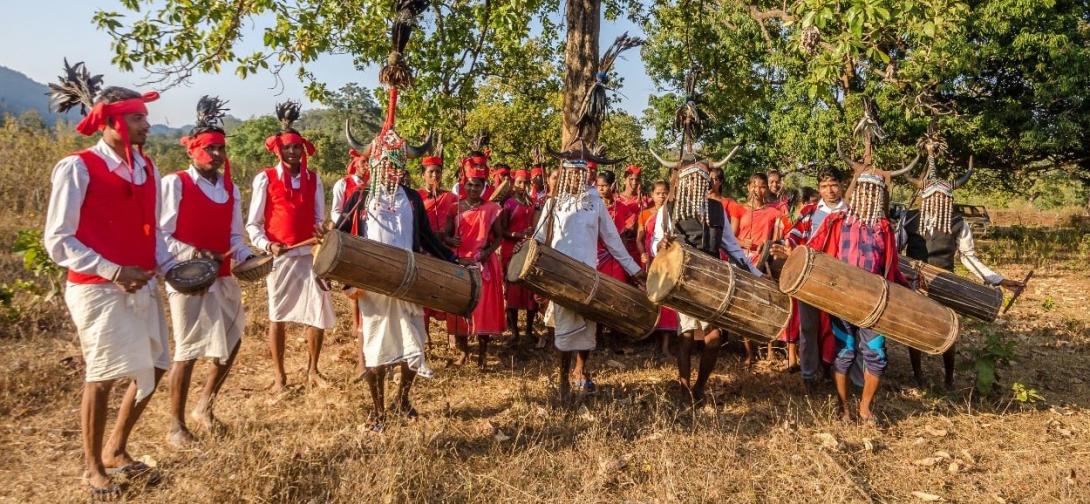Local to Global: Promotion of Tribal Products
As per the Census 2011, the tribal population constitutes about 8.9% of the total population in India. They are spread across the country and reside in the forest and hilly regions of the country. The tribal economy is mainly concentrated around the collection and processing of Minor Forest Products and cultivation largely for the purpose of domestic consumption. They usually struggle to meet their economic needs with a bare minimum income (cash). This is due to a substantial number of tribals being cut off from the civilized world, who are unable to adapt to modernization. The tribal economies lack organized markets as well as financial institutions to promote the tribal products. There is a huge demand for tribal artifacts, textiles, ornaments, paintings, potteries, cane and bamboo products and organic and natural food products, but the supply side of this economy is way below the demand side and thus the community fails to profit from its produce. Thus, efficient production and effective promotion become imperative for the economic development of this community.
Mainstreaming Tribes is a Constitutional Mandate and also a national priority for the Government. Measures or interventions to cater to the promotion of tribal products are of utmost importance, given the penurious conditions prevailing. Tribes procure most of their raw materials from the forests and produce a variety of products that have significant symbolism in their culture. These products have a huge demand across the world, especially in the South Asian and Southeast Asian countries as well as in the domestic markets. But the supply of these products is extremely low. The tribes are often, unaware of the consumer preferences and the consumers do not have information about the products that are produced by indigenous groups. This is one of the consequences of inadequate marketing strategies and as a result, the community is unable to profit from the products that it produces. The community is isolated from modern civilization and lacks knowledge about modern techniques and designs which is extremely disadvantageous to them.
The Government of India established TRIFED, in August 1987 under the Multi-State Co-operative Societies Act, 1984. It is a national-level cooperative body; its main objective is to ensure the socio-economic development of the Indian Tribal community by institutionalizing the trade of Minor Forest Produce and Surplus Agricultural Produce cultivated by them. TRIFED has launched a chain of retail outlet stores called ‘TRIBES INDIA’, through which TRIFED procures and markets tribal arts and crafts items. There are now 130 retail outlets across India and they cater to both domestic as well as international markets. The Ministry of Tribal Affairs has introduced a mechanism for marketing Minor Forest Produce through Minimum Support Price and development of value chain for social safety of this forest produce gatherers in 2013. The Van Dhan Yojana was spearheaded by TRIFED, was introduced on 14th April 2018, and has been implemented in 27 states and 307 districts.
Even though such schemes have given a boost to the production and promotion of tribal produce, the effects have not been significant. The tribal communities are largely isolated from the rest of the civilization and due to this limited exposure, they lack awareness about such schemes and fail to benefit from them. It becomes imperative that the government promotes such schemes and encourages the tribal community to avail the benefits of such schemes. Additionally, these communities must be motivated to adapt to modernization so that they can obtain complete market information and can no longer be manipulated by the middlemen.
Production and promotion of tribal products is the need of the hour and is critical to ensure improvement of the economic condition of Tribes in India. Production of such products may result in large-scale employment generation of the tribal community. In absence of a sufficient supply of such products, marketing strategies fail to benefit the target community. Hence, measures must be introduced to increase the production of tribal products.
Way forward
Need to encourage Corporate Social Responsibility funds towards upscaling tribal youth,
Need to promote innovation in products and marketing facilities for tribal products by engaging franchises in small and medium towns and also in Metropolitan Cities,
Convergence needs to be built with schemes of the Ministry of Commerce and Ministry of Textiles to promote the export of tribal products globally,
Necessary investments must be made so as to make the raw materials easily available, accessible and affordable,
Marketing strategies need to be promoted to further encourage the sales of tribal products,
Domestic private companies should be empanelled for promoting skills and production process of tribal,
Efficient marketing strategies must be deployed so that proper information transfer takes place between the producers and the consumers,
Improvements in these areas are of utmost importance for the socio-economic development of the Indian Tribal communities, which goes hand-in-hand with efficient production and effective promotion of Indian Tribal products.
Authored by Dr. Muniraju, SB, Deputy Adviser and Ms. K. Sirisha, Intern, NITI Aayog. Views expressed are personal.
 National Portal Of India
National Portal Of India 








